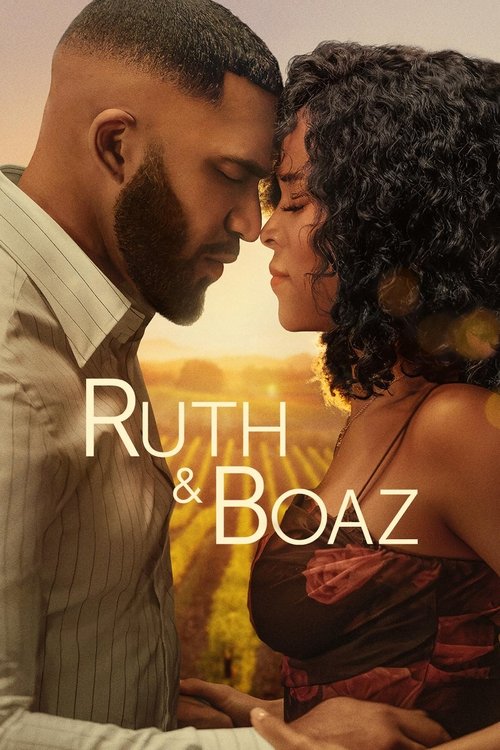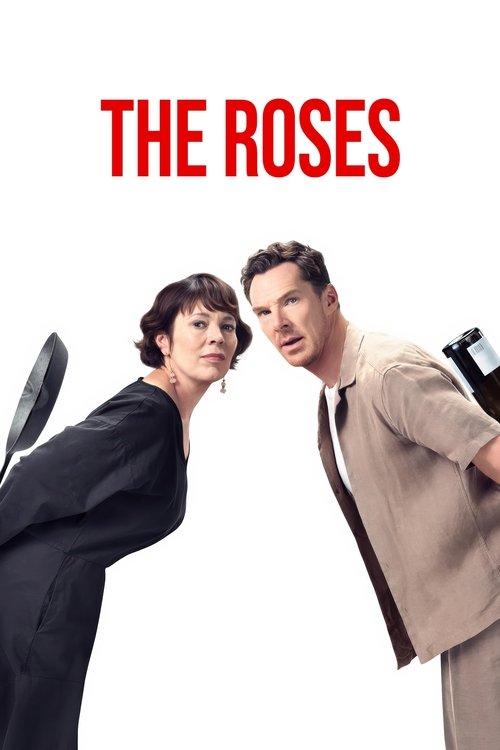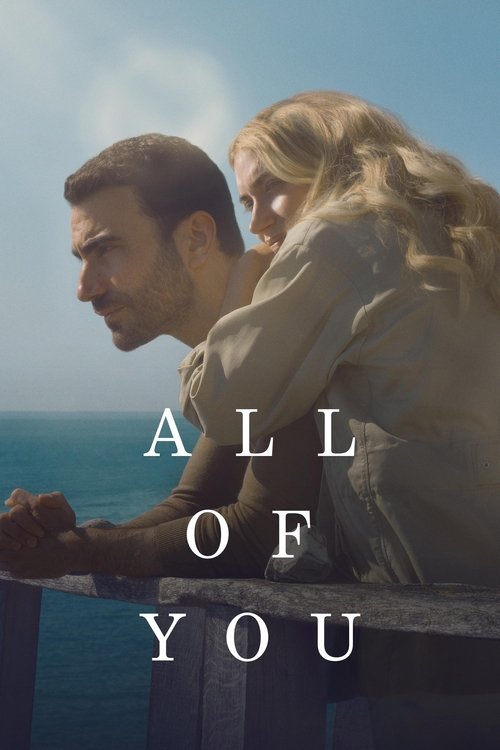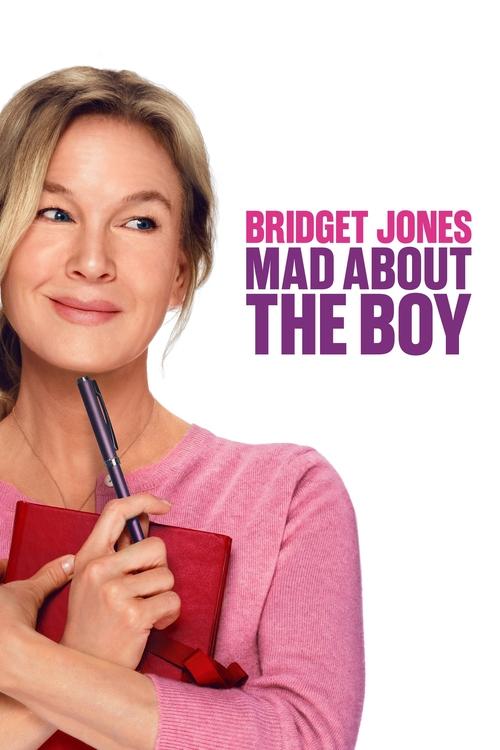
Ask Your Own Question
What is the plot?
Theo and Ivy Rose meet one afternoon in London, where Theo, an architect, escapes a stressful business dinner and wanders into the kitchen of a restaurant where Ivy works as a chef. They quickly connect over Ivy's cooking and her dream of moving to America to start her own business. Theo proposes they move together, and their passionate relationship begins with an intimate encounter in the restaurant's freezer.
Fast forward ten years, Theo and Ivy have relocated to Mendocino, California, and are married with twin children, Hattie and Roy. Their parenting styles clash: Ivy indulges the children with sweets and fun, while Theo enforces strict health regimens. Ivy has sacrificed her culinary ambitions to raise their kids, but Theo surprises her by purchasing a piece of real estate so she can finally open her own seafood restaurant, which she names "We've Got Crabs!" She hires a sous chef, Jane, and a waiter, Jeffrey, to help run the business.
Theo is preparing for the grand opening of a naval history museum he designed, which features a controversial sail on a boat model atop the roof. During a severe storm, the sail collapses, causing the entire roof to cave in. The disaster is captured on video and goes viral, humiliating Theo and effectively ending his architectural career. Meanwhile, Ivy's restaurant becomes a refuge for customers seeking shelter from the storm, including a noted food critic who gives a glowing review, propelling Ivy's business to success.
With Theo unemployed, he agrees to become a stay-at-home dad, enforcing strict diets and exercise routines on the children, which alienates Ivy and causes tension in their marriage. Friends like Barry and Amy notice Theo's growing resentment toward Ivy's rising career. Attempts to reconcile include couples therapy with their counselor Janice and a romantic trip to New York City, but these efforts fail as Theo's bitterness deepens, culminating in a drunken outburst on the plane and Ivy's own drinking escapades.
Ivy encourages Theo to pursue his dream of building a custom house, using profits from her expanding restaurant franchise to fund the project. Over the next three years, the dream house nears completion, and their children, now teenagers, earn sports scholarships to the University of Miami. Despite these milestones, Theo and Ivy's relationship deteriorates further. At a housewarming party with friends, Ivy humiliates Theo publicly, and their bickering escalates into a meltdown where Ivy blasts death metal through the smart home system and throws cake at guests before storming out.
The next day, Theo helps rescue a beached whale, an experience that leads him to realize he no longer loves Ivy and wants a divorce. The ensuing legal battle becomes acrimonious: Ivy demands the house, while Theo refuses to give her anything. Their feud escalates into sabotage--Theo burns Ivy's prized cookbooks and ruins her restaurant's fish orders, while Ivy orchestrates a health inspection that temporarily closes the restaurant and creates an AI video falsely implicating Theo in drug use. Theo retaliates by contaminating Ivy's food with psychedelic mushrooms and grating a wart onto a dish.
The conflict intensifies when Theo tricks Ivy, who has a severe raspberry allergy, into eating a raspberry dessert, causing an anaphylactic reaction. He only relents and administers an EpiPen after she signs divorce papers, which she deceitfully signs under the name "Zendaya." In retaliation, Ivy attempts to shoot Theo with their home defense gun. They chase each other through the house, smashing Ivy's beloved Julia Child stove in the process. Exhausted, they finally admit they never wanted to divorce and confess their lingering love for each other.
As they begin to reconcile, a gas leak from the damaged stove spreads throughout the house. Unaware of the danger, Theo instructs their smart home system, HAL, to light a fire and play music. The house explodes in a white flash, killing both Theo and Ivy. The film closes on this tragic note, underscoring the destructive culmination of their bitter rivalry and unresolved resentments.
Throughout the story, the Roses' marriage unravels amid professional failures, shifting family dynamics, and escalating personal vendettas. Their children, Hattie and Roy, grow from playful twins into young adults caught in the crossfire of their parents' conflict. Friends like Barry and Amy, as well as Sally and Rory, serve as witnesses to the Roses' disintegration, often caught in uncomfortable situations during social gatherings. The film's narrative weaves moments of dark humor with intense emotional drama, charting the rise and fall of a couple whose love turns into a combustible war.
What is the ending?
At the end of The Roses (2025), Theo and Ivy Rose, after a bitter and escalating feud, confront each other in their home. Despite their destructive battle, they admit they still love each other. As they become intimate, a gas leak caused by the damage to Ivy's stove leads to a dangerous situation. Theo unknowingly turns on the fire, and the screen cuts to white, leaving their fate ambiguous.
The ending unfolds in a tense, emotionally charged sequence inside the Roses' home. After years of marriage disintegration marked by professional failures and personal betrayals, Theo and Ivy reach a breaking point. The scene begins with Ivy mocking Theo at a housewarming party, humiliating him in front of friends and discrediting his architectural work. This public shaming intensifies their conflict.
Theo, who has recently saved a beached whale and undergone a personal epiphany, realizes he no longer loves Ivy and seeks a divorce. He asks only for the house, but Ivy demands to leave him with nothing. Unable to reach an agreement, they embark on a campaign to make each other's lives miserable. This includes Theo getting blacklisted from architecture and Ivy's restaurants being shut down for health violations.
The conflict escalates dangerously when Theo tricks Ivy into eating a raspberry dessert, to which she is severely allergic. She requires an epinephrine shot, which Theo offers only if she signs divorce papers. Ivy pretends to sign but Theo saves her anyway. In retaliation, Ivy tries to shoot Theo with their home defense gun, leading to a chaotic chase around the house. During this, they break Ivy's cherished stove, a prized possession that once belonged to Julia Child.
Overwhelmed by the chaos and their emotions, Theo confesses he still loves Ivy. Ivy reciprocates, and they begin to reconcile physically. However, the damage to the stove causes a gas leak. Unaware of the danger, Theo instructs their smart home system to turn on the fire. The screen then cuts to white, leaving the outcome uncertain.
Regarding the main characters' fates:
- Theo Rose: After professional ruin and personal turmoil, he admits his enduring love for Ivy but faces an uncertain fate due to the gas leak.
- Ivy Rose: Despite her fierce rivalry with Theo, she also acknowledges her love for him. Her fate is similarly left ambiguous at the film's close.
- Their children: Mentioned earlier as prodigies accepted into a sports school, they are not present in the final confrontation and their fate is not detailed in the ending.
The ending scene is a culmination of the couple's destructive love-hate relationship, marked by physical and emotional violence, yet underscored by lingering affection. The abrupt cut to white after the gas leak creates a dramatic, unresolved conclusion.
Who dies?
Yes, two main characters, Ivy and Theo Rose, die in the movie The Roses (2025). Their deaths occur at the film's ambiguous but strongly implied tragic ending.
Circumstances of their deaths:
-
After a brutal and escalating fight fueled by resentment and jealousy over their failing marriage, Ivy pulls out a gun and Theo smashes her beloved oven. They nearly come to fatal blows but eventually lock themselves in separate rooms and have a heartfelt conversation, realizing they still love each other.
-
As they reconcile, Theo lights a fire in the kitchen for a romantic reunion. However, the broken oven had leaked gas throughout the house. The film ends with a white screen, heavily implying that the gas ignites, causing a fatal explosion or fire.
-
The film visually emphasizes the gas leak and the danger, making it very unlikely that Ivy and Theo survive. This ending mirrors the original War of the Roses (1989) film, where the couple also dies in a violent climax.
-
Their twin children are away at university during this final event, so they are not involved in the deaths.
In summary, Ivy and Theo die together in a gas-related fire or explosion at their home during their final reconciliation. No other character deaths are indicated in the film.
Is there a post-credit scene?
The movie The Roses (2025) does have a post-credit scene. After the main story concludes, the post-credit scene shows a brief, darkly comedic moment where the estranged couple, Theo and Ivy, unexpectedly cross paths at a high-end restaurant. Their interaction is tense and awkward, underscoring the lingering resentments beneath their fractured relationship. The scene ends with a subtle but sharp exchange of words that hints at unresolved conflict and sets a tone of ironic continuation beyond the film's main narrative.
This scene aligns with the film's satirical and tragicomic tone, emphasizing the ongoing battle of wills between the couple even after the formal end of their marriage storyline.
What triggers the initial breakdown of Ivy and Theo's marriage in The Roses (2025)?
The initial breakdown is triggered by Theo's career nosediving while Ivy's career ambitions take off, creating fierce competition and hidden resentment between them.
How does Theo react to Ivy's rising career success in the film?
Theo grows increasingly frustrated and resentful as Ivy climbs the career ladder while he faces professional failure, which escalates tensions in their marriage.
What are some key confrontational scenes between Ivy and Theo depicted in the movie?
Here is a detailed, scene-by-scene breakdown of key confrontational moments between Ivy and Theo in The Roses (2025), focusing on their escalating marital conflict, emotional states, and the physical and psychological stakes of each encounter:
Scene 1: The Humiliation at the Housewarming Party
After their children leave for boarding school, Ivy and Theo host a housewarming party in the home Theo designed. Ivy, emboldened by her rising culinary success and Theo's professional disgrace, seizes the spotlight. In front of their friends, she mocks Theo's architectural failures, specifically referencing the collapse of his nautical center project. She ridicules his taste and vision, suggesting the house itself is a monument to his ego rather than a home. Theo, already fragile from his career implosion, is visibly wounded--his usual confidence replaced by a simmering, impotent rage. The guests' laughter stings, and Theo's humiliation is complete when Ivy toasts "to new beginnings," a pointed jab at his professional demise. This public shaming marks the point where their playful jabs turn into open warfare, with Theo retreating into himself, plotting revenge.
Scene 2: The Raspberry Dessert Trap
Theo, desperate to regain control, exploits Ivy's severe raspberry allergy. He prepares a dessert laced with raspberries, knowing full well the consequences. When Ivy takes a bite, her initial confusion turns to panic as her throat begins to close. Theo, holding the EpiPen, coldly demands she sign the divorce papers in exchange for the life-saving injection. Ivy, though terrified and struggling to breathe, refuses to be manipulated. She pretends to sign, but Theo, seeing her distress, ultimately administers the EpiPen anyway--revealing that, beneath his vindictiveness, he cannot bring himself to let her die. Ivy's fear and betrayal are palpable; she realizes the depth of Theo's resentment, but also glimpses a flicker of his lingering care. The scene is charged with both physical danger and emotional cruelty, as Theo's actions cross a moral line, yet his hesitation exposes his internal conflict.
Scene 3: The Gun and the Stove
Ivy, now fully enraged and feeling betrayed, retrieves the family's home defense gun. She confronts Theo in the kitchen, the heart of her culinary domain. The tension is electric--Ivy's hands shake, her eyes wide with a mix of fury and fear, while Theo's face is a mask of shock and defiance. They circle each other, trading accusations, their voices rising to shouts. In a moment of chaos, Theo smashes Ivy's beloved Julia Child oven, a symbol of her identity and success. The destruction is visceral--metal crumples, glass shatters, and Ivy's scream is one of genuine heartbreak. Theo, realizing the magnitude of his act, locks himself in the bathroom, overwhelmed by guilt and the realization that their battle has spiraled out of control. Ivy, gun still in hand, is left sobbing amidst the wreckage of her kitchen, her professional pride and personal sanctuary violated.
Scene 4: The Bathroom Confession
Separated by the bathroom door, both Ivy and Theo are forced to pause. The physical barrier becomes a metaphor for the emotional walls they've built. Theo, voice cracking, admits he still loves Ivy despite everything. Ivy, exhausted and raw, confesses the same. Their vulnerability is stark--years of resentment, competition, and pain laid bare. For the first time, they speak honestly, without sarcasm or strategy. The release is cathartic; they laugh, almost disbelieving at how close they came to destroying each other. This moment of connection is bittersweet, as both recognize the love that persists beneath the wreckage of their marriage.
Scene 5: The Final Reckoning
Emboldened by their reconciliation, Theo and Ivy attempt to rekindle their intimacy. Unbeknownst to them, the destruction of the stove has caused a gas leak. Theo, seeking to create a romantic atmosphere, asks their smart home system to light the fire. The screen cuts to white--a sudden, ambiguous ending that strongly implies their mutual destruction. The gas-filled house, a symbol of their toxic relationship, becomes the stage for their final, fatal embrace. The audience is left with the haunting image of two people who, in seeking to hurt each other, ultimately find only mutual annihilation.
Character Motivations and Emotional Arcs
Throughout these confrontations, Ivy is driven by a need to assert her independence and worth after years of supporting Theo's career. Her mockery and aggression are attempts to reclaim power in a relationship where she once felt secondary. Theo, humiliated by professional failure, clings to the remnants of his pride, lashing out in increasingly desperate and dangerous ways. Both are trapped in a cycle of retaliation, each act of cruelty deepening their mutual wounds. Yet, in their final moments, their vulnerability and honesty reveal the enduring, if fractured, bond between them--a love that is as destructive as it is genuine.
These scenes are the emotional and narrative core of The Roses, charting the couple's descent from witty sparring partners to bitter adversaries, and finally, to tragic figures whose love and hate are inextricably intertwined.
Who are the main characters involved in the divorce battle in The Roses?
The main characters involved are Ivy, played by Olivia Colman, and Theo, played by Benedict Cumberbatch, whose marriage unravels into a bitter and epic divorce battle.
What role does the couple's family life play in the story?
The couple has great kids and a seemingly loving family life, but the tension and competition between Ivy and Theo beneath the surface threaten to destroy this picture-perfect family facade.
Is this family friendly?
The Roses (2025) is not considered family-friendly due to several potentially objectionable or upsetting aspects. Here are some details without revealing any plot spoilers:
- Language: The film contains very strong language, which may be inappropriate for younger audiences.
- Sexual Content: There are strong sex references throughout the movie, which could be uncomfortable for children or sensitive viewers.
- Drug Misuse: The film includes scenes of drug misuse, which may not be suitable for all ages.
- Threat and Tension: The movie involves elements of threat, contributing to a tense atmosphere that might be unsettling for some viewers.
- Emotional Conflict: The story explores intense emotional conflicts and competition within a relationship, which could be emotionally challenging for sensitive viewers.
Overall, while the film is a dark comedy and satire, its content is geared more towards adult audiences due to these mature themes.











































